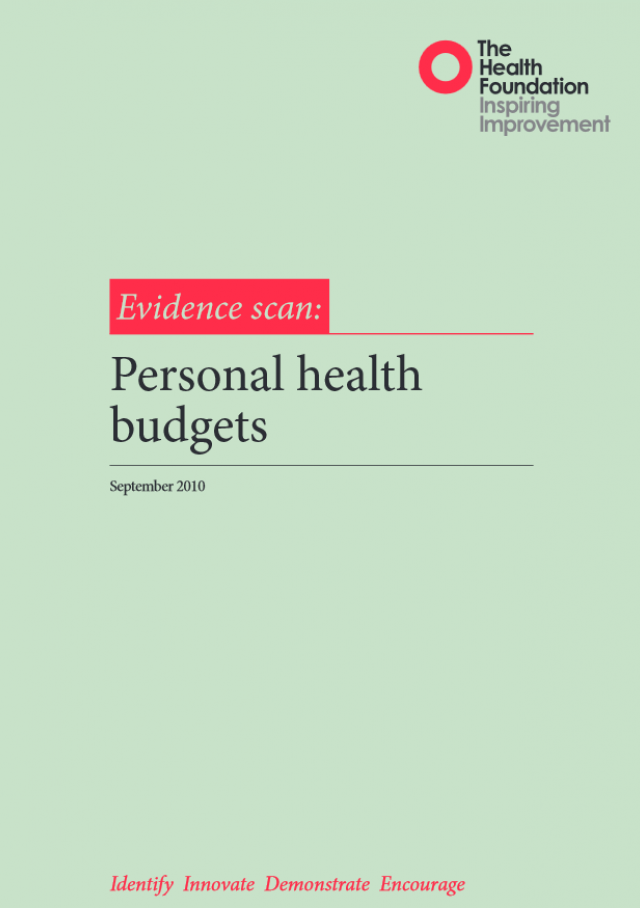Personal health budgets
September 2010

Key points
- The amount of high quality research available to guide policy and practice is limited.
- Personal budgets are implemented differently in various countries:
- sometimes people are given cash payments to spend as they wish
- alternatively, organisations keep responsibility for making payments but service users state what they want purchased on their behalf.
- Evidence about impacts on health outcomes and service use is mixed.
- There is limited information about value for money, largely because there are few rigorous effectiveness studies.
- There seem to be differences in implementation across the four countries of the UK.
- To be successful, personal budgets need to offer adequate infrastructure, staff training and signposting, and support to service users.
- Older people may be more likely to find managing their own budget a burden.
This evidence scan collates more than 60 articles about personal health and social care budgets in the UK and internationally. The purpose is to provide a brief synopsis of evidence to help gauge the level of research in this field so far.
Personal health budgets encourage people to purchase and manage their own care, within a set budget. The aim is to increase choice and reduce overall costs.
Further reading
Work with us
We look for talented and passionate individuals as everyone at the Health Foundation has an important role to play.
View current vacanciesThe Q community
Q is an initiative connecting people with improvement expertise across the UK.
Find out more

